2022-23 Sadler Scholars
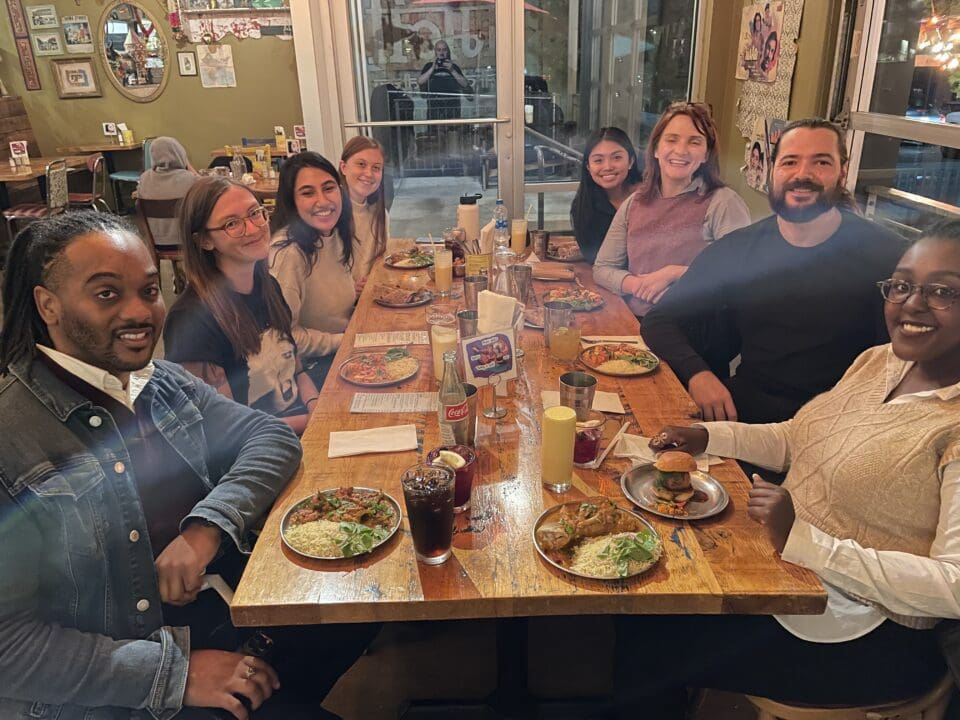
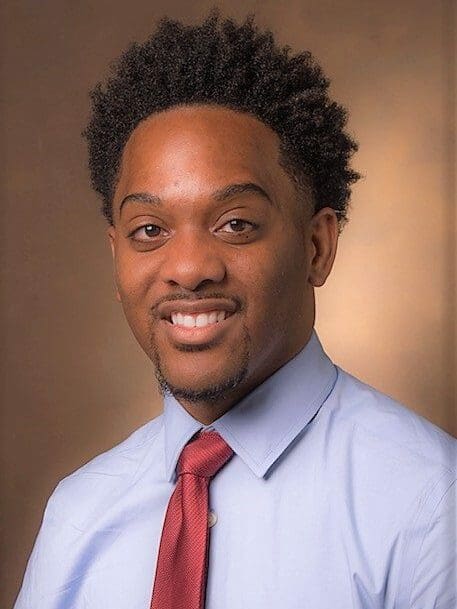
Donald Carter, MBA, MDiv
Degree Program: DBe, Bioethics, Loyola University Chicago
he/him/his
About me: I am a native of Arkansas, and through participation in Upward Bound, a Federal TRIO program for precollege students, I gained the tools to navigate the academic pipeline. I received a BA from Fisk University, an MBA from Tennessee State University, and an MDiv. from Vanderbilt University. I am now a third-year doctoral student in bioethics with a concentration in clinical ethics, preparing to receive my doctorate in the spring 2023 from Loyola University Chicago. My immediate goal is to become a clinical ethicist at an academic medical center. My long-term goal is to discover ways to strengthen the relationship between medicine and the African-American community.
My research interests in bioethics: I am interested in the emerging concept of Black bioethics, which focuses on anything that directly or indirectly impacts the health and well-being of African-Americans, individually or collectively. As a Sadler Scholar, I would like to focus on using artificial intelligence in health care. With AI using algorithms to search through medical records, assist with appointment scheduling, and diagnose patients, the growing census is that this new technology will benefit the health care industry. Yet information from an industry that has not adequately addressed its systemic biases will teach the emerging technology to perpetuate racial bias.
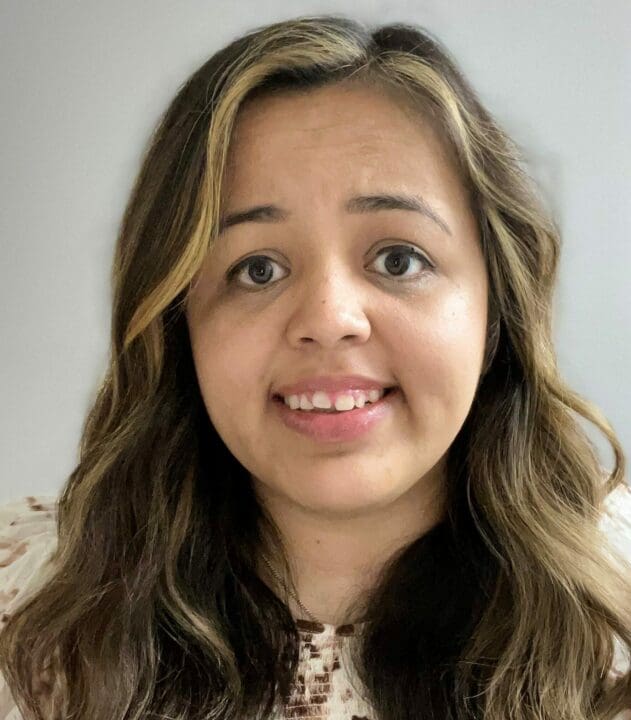
Marissa Espinoza, MA
Degree Program: PhD, Health Care Ethics, St. Louis University
she/her/hers
About me: I am a Mexican-American, first-generation college student from Southern California, pursuing a doctorate in health care ethics at St. Louis University. I am interested in virtues in medical practice, justice in access to health care resources for vulnerable groups, and epistemic injustice in health care. My goal is to work in academia and clinical ethics; having clinical ethics experience will inform my teaching.
My research interests in bioethics: My research focuses on how members of marginalized communities often experience harms in health care from not being able to make their experiences intelligible to members of privileged, dominant groups. In my dissertation, I argue that an account of the physician-patient relationship as one of civic friendship allows for just disagreement among moral strangers representing privileged versus marginalized groups. I am also interested in exploring when conscientious objection constitutes epistemic injustice and when it is a case of justified epistemic disagreement. I would like to continue to explore cases of epistemic injustice in health care.

Oluyemi Farinu, MPH, CHES
Degree Program: PhD, Sociology, Georgia State University
she/her/hers
About me: I am the daughter of two immigrants who left Nigeria to start a family in America for better life opportunities. Currently, I am a fourth-year doctoral candidate in sociology at Georgia State University. When I complete my degree in May 2023, I will be the first member of my family to earn a PhD. My areas of study include the ethics of social mobility and health equity, focusing on the Black community. My goal is to be a Black woman scholar at a leading academic research institution to advance the social impact and community well-being of disadvantaged groups through research, teaching, and service.
My research interests in bioethics: My research centers social determinants of health that hinder marginalized groups from good quality of life and overall well-being. My dissertation investigates the disparate physical, mental, and emotional health outcomes of burnout among Black millennials in the United States. I am examining the ways in which systemic and structural racism prevent this group from being socially mobile, which, in turn, triggers chronic stress. I am a research assistant on a National Institutes of Health-funded project at Georgia State University, interviewing Black community members in the metro-Atlanta area to further understand their barriers to and motivations for participating in Covid-19 testing and related research. I am also a research assistant in the QuEEn Savvy Lab at Emory, which focuses on mobile health interventions to support Black women’s sexual and reproductive health. The ethics of equitable health care access, quality, and cost are my major passions.
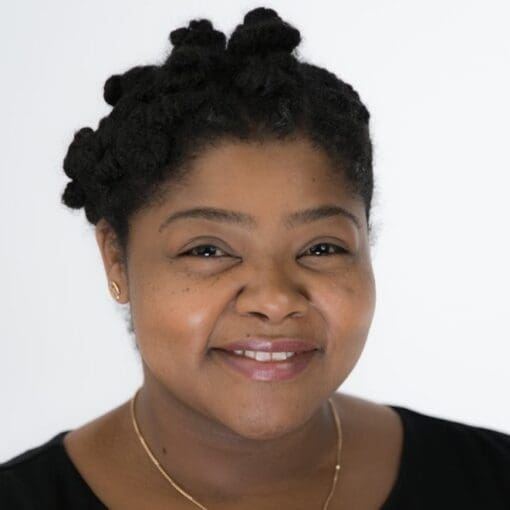
Leah Lomotey-Nakon, MEd, MTS
Degree Program: PhD, Social Ethics, Graduate Department of Religion, Vanderbilt University
she/her/hers
About me: I am a fifth-year social ethics PhD candidate in the Graduate Department of Religion at Vanderbilt University and biomedical ethics trainee at the VUMC Center for Biomedical Ethics and Society. My work explores organizational ethics in the health care industry through participatory research projects. I weave theories and methods from social ethics, community psychology, and digital humanities to empirically identify and investigate intercultural responses to social and structural inequities.
My research interests in bioethics: As a first-generation Ghanaian American raised at the foothills of the Blue Ridge Mountains in South Carolina, I am particularly attentive to divergent interpersonal, institutional, and ideological responses to moral distress at the beginning and end of life. I am also curious about the ways in which West African ethics of care and virtue theories might contribute to the field of discourse.
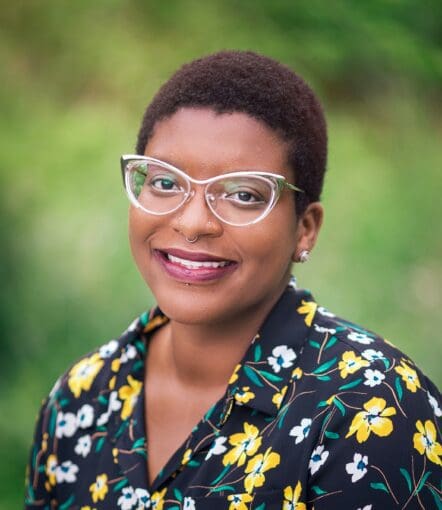
Maya Malik, MS
Degree Program: PhD, Social Work, McGill University
they/them/their
About me: I am a doctoral student in the School of Social Work at McGill University. I am currently a researcher with the McGill Global Child Research Group for the Participatory Methods Axis and the Berkman Klein Center for Internet in Society in their Youth and Media core. I earned a master’s degree in social work from the Columbia University School of Social Work, focusing on international social welfare and rights for immigrants and refugees through program design, research, and evaluation. I have worked as a training and communications coordinator for the Women’s Health Unit at Boston Medical Center, supporting the multistate HEALing Communities Study funded by the National Institute on Drug Abuse. Throughout my academic career, I have taught low-income youth of color in communities in the United States and India, utilizing arts-based learning techniques to create interactive programming.
My research interests in bioethics: My current research focuses on how to utilize arts- based youth-led participatory research methods to work with queer Black Americans who have been involved with criminal justice systems to improve educational intervention programs. I am also working to apply critical race theory and intersectionality to combat the epistemicide of non-dominant knowledge around the impact that racial equity has on the well-being of Black Americans (and to see if this can be mitigated through reparations related to public health). I have worked in mixed-methods research exploring how structural oppression impacts different aspects of life for members of different marginalized communities and the possible impact Reparations could have.
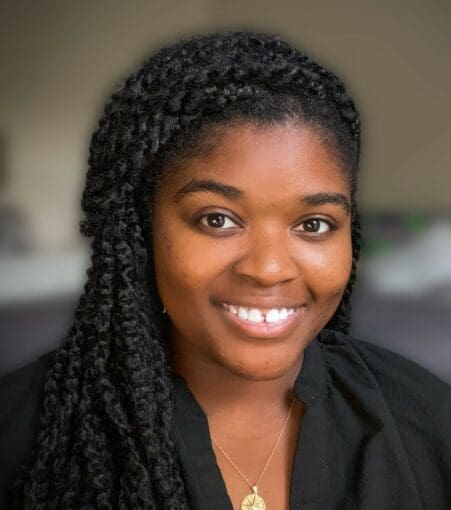
Allegra Merriweather, MSc
Degree Program: PhD, Health Care Ethics, Duquesne University
she/her/hers
About me: I discovered bioethics in my undergraduate philosophy degree coursework, as a pre-med requirement. My undergraduate work focused on extracorporeal membrane oxygenation as an ethical means of organ preservation. In my master’s studies, I shifted the primary focus of my work to health literacy and cultural competence in clinical care. Though I originally planned to become a neurosurgeon, the hierarchical nature of that field was not appealing. I am currently a doctoral candidate in health care ethics at Duquesne University, approaching the completion of my dissertation.
My research interests in bioethics: My dissertation focuses on race-based medicine as it functions as a means for structural racism within the health care setting. Throughout my doctoral studies, I have explored topics pertaining to race-based medicine, such as maternal death, implicit bias, the ethics of care as it relates to race, and the ethics of race as a proxy for genetic variables in health care research. As a scholar, I hope to focus on gaining a deeper understanding of structural racism as it pertains to bioethics. This topic is vast, and it is integral to understanding providing appropriate minority health care. Over the years, I have learned more about the necessity of understanding the health care system, an essential skill that is not shared uniformly with the general population. Now, my professional goals are to extend this understanding to those underrepresented in the field.
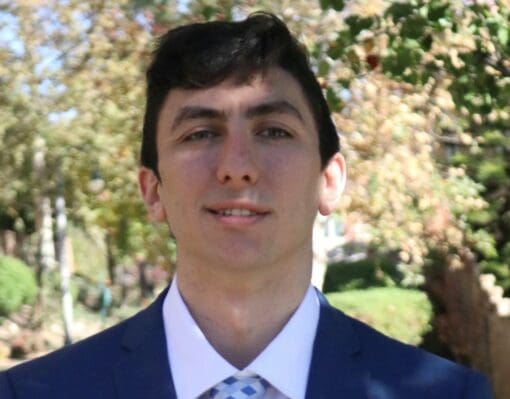
Angel Reyes, MPH
Degree Program: PhD, Public Health, Claremont Graduate University
About me: Without a lot of options, I used the military to escape poverty and work towards a better quality of life. I will begin the dissertation phase of my doctorate in public health in fall 2022 and hope to graduate within two years from Claremont Graduate University. My professional goal is to tackle macro-level issues, such as how best to distribute resources, that affect an individual’s foundation for a healthy life. I want to help eliminate preventable health disparities, so that everyone has a better opportunity to flourish.
My research interests in bioethics: I really enjoy how bioethics is a point of concern for guiding and shifting positive change in the world. My doctoral training will equip me with the knowledge and skills to create equitable interventions; it will not equip me to decipher values and priorities when conflicting points arise. Being a Sadler Scholar will help my proposals to be ethical as well as effective, to earn trust and promote the common good.
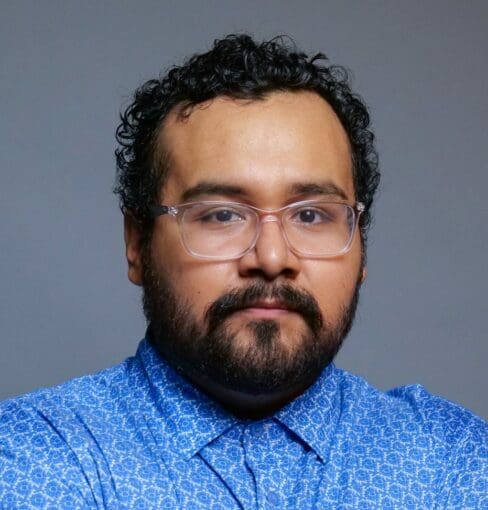
Gregory Rogel, MA
Degree Program: PhD, Philosophy, Michigan State University
he/him/his
About me: I am a first-generation Latino scholar, born and raised in Los Angeles. One of my primary research interests is examining the health disparities facing immigrant/Latino communities through population health research, namely, explicating how immigration is a social determinant of health. My research comes from a position of service; I aim to leverage my philosophical expertise on behalf of my community. My professional goal is to acquire the skills, knowledge, and network necessary to advance immigrant health equity. As a Sadler Scholar, I hope to become a better researcher, speaker, and collaborator, all skills that support this goal.
My research interests in bioethics: My work sits at the intersection of social and political philosophy and population health science. Social and political philosophy investigates the structural factors that create and maintain health inequities facing immigrant communities. Population health science explicates how immigration is a social determinant of health. My research interests include using population health literature to answer questions such as why immigration is a social determinant of health; how immigration raids can cause adverse birth outcomes for Latina mothers; and how these outcomes are the “unintended” consequence of U.S. immigration law, policy, and enforcement. I advocate for a community-based participatory research approach that allows researchers to work directly with immigrant communities. This partnership helps create public programs that center the needs of immigrant community, advancing health equity.
Read article and interview with Greg Rogel.

Deborah Rose, MD
PGY-3, Department of Neurology
Duke University Medical Center
she/her/hers
About me: I am a first-generation Jamaican-American born and raised in New Jersey. Currently, I am a third-year neurology resident (PGY-3) at Duke University Medical Center. Following residency, I plan to pursue a fellowship in Behavioral Neurology and Neuropsychiatry. My career interest is in studying the role that adverse childhood experiences and chronic toxic stress play in the pathogenesis of Alzheimer’s disease and contribute to the racial disparities seen in this condition. These include trauma, addiction, low educational attainment, environmental toxins, cardiovascular disease, mental illness, and lifestyle behaviors such as smoking, poor sleep, physical inactivity, and poor diet. We have a fairly good understanding that numerous biopsychosocial challenges can considerably modify one’s risk for Alzheimer’s disease. I’d like to explore the associations between psychosocial stressors, mental illness, and other public health factors in the development of Alzheimer’s disease.
My research interests in bioethics: Understanding ethics in dementia care is crucial to ensuring quality care for our aging population. One issue that demands improved practices is the inpatient management of the behavioral and psychological symptoms of dementia (BPSD), which include depression, delusions, agitation, and anxiety. The consequences of BPSD include accelerated mortality, increased caregiver burden, greater total direct care costs, and diminished quality of life. Hospitalized patients with dementia are particularly vulnerable to experiencing BPSD in the context of acute illnesses. For these patients, hospitalization may precipitate and even accelerate BPSD outcomes. The goal of this current clinical research is to examine current practices of inpatient management of BPSD and identify deficiencies that need to be addressed to ensure optimal inpatient management.
